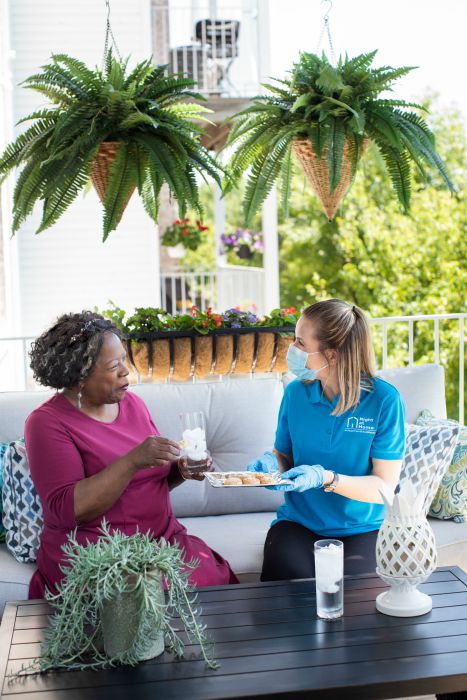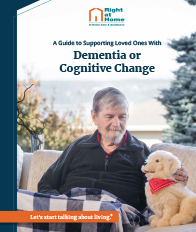Setting the Stage: Your Role When Providing A Loved One Care for Dementia
Setting the Stage: Your Role When Providing A Loved One Care for Dementia in Brooklyn, NY
Helping you prepare so you can provide the best care for your loved one at each stage of the disease
When a loved one is diagnosed with dementia, family members often initially take on the responsibility of caring for their loved ones. In addition, they must also figure out how to balance care for themselves as well as life’s other priorities in the process.
This ripple effect is why dementia is considered a family disease.
Those providing care for dementia must face behavioral challenges, develop new communication skills, and have a general understanding as to how to keep their loved one safe. Luckily, providing the right care just takes a little preparation and knowledge of your role.
Preparing for Each Stage of Dementia
Dementia is a disease that progresses in stages, and the more you know about each stage, the better you can prepare yourself.
Early Stage
Behaviors to expect:
- Decline in short term memory recall
- Disorientation
- Difficulty with common tasks
- Simple mathematical or grammatical mistakes
- Social withdrawal
Your Role
Since your role in providing care for dementia is minimal, this is a time to adjust to the diagnosis and start preparing for the long run. This includes:
- Creating a point of contact for all care needs
- Creating a support group of family members, health experts, and care agencies
- Appointing someone to manage financial, legal, and medical decisions
- Learning how to respond to and manage behavioral issues such as aggression or sundowning
- Speaking with your loved one to learn their current needs, future wishes, and begin to develop new means of communication
 Mid Stage
Mid Stage
Behaviors to expect:
- Inability to complete common tasks
- Increased confusion and aggression
- Difficulties with expression, comprehension, and communication
- Decline in spatial awareness and object perception (IE: inability to tell if a dish of fruit is edible or decorative)
- Wandering or sundowning
Your Role
Care for dementia at this stage typically increases from weekly check-ins and gentle reminders to full support for their daily living needs. Help from a professional caregiver is often necessary to support the family. Important aspects of your role include:
- Enlisting the help of a caregiver, especially respite care services
- Creating a schedule of care that consists of supporting daily living needs, memory exercise, and general companionship
- Creating a daily or weekly routine for your loved one to follow to reduce confusion
- Creating a record of care that tracks caregiving visits, medications taken, and behavioral changes that is shared with the family, caregiver, and doctors
- Rearranging the home to increase safety and ease of living
Late Stage
Behaviors to expect:
- Inability to communicate or recognize people, places, time/date, or objects
- Loss of ability to swallow, smile, grab things, or walk
- Muscle contractions, weight loss, seizures
Your Role
Help from family members and an experienced caregiver can extend your loved one’s ability to remain independent at home. However, the best care that can be provided to someone with late stage dementia is best sought from a skilled nursing facility. These facilities have the resources necessary to continuously monitor and manage your loved one’s needs, as they will require around-the-clock care.
Care for Dementia, One Stage at A Time
Understanding what occurs during each stage of dementia is an important step to helping you provide the best care. While it certainly has its difficulties, families must remember the importance of their role and that they are not alone in taking it. Contact our agency in Brooklyn, NY either online or by phone at (347) 554-8400 to learn more about caring for loved ones with dementia, our in-home services, and care team.

Dementia or Cognitive Change Guide
A free downloadable guide for those supporting loved ones with Dementia or Cognitive Change



